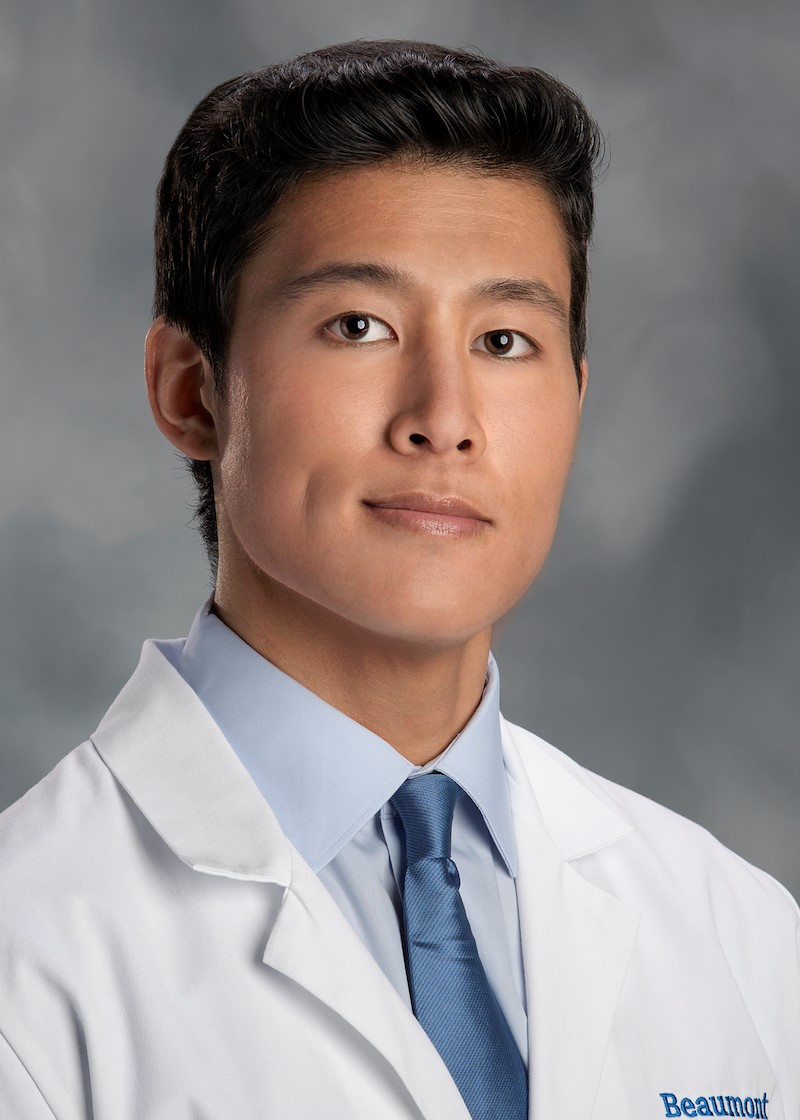Michael Chung, M.D., chief resident of the Wayne State University School of Medicine’s Otolaryngology residency program, is the recipient of the Gold Humanism Honor Society Award.
The society is a national organization that seeks to “recognize individuals who are exemplars of humanistic patient care and who can serve as models, mentors, and leaders in medicine.” The School of Medicine has hosted a GHHS chapter since 2005.

Candidates are nominated by medical students, residents and faculty, and a committee of GHHS members selects awardees based on their “demonstration of excellence in clinical care, communication skills, compassion, integrity, moral judgement, leadership, and commitment to humanism.”
Dr. Chung said that he has the “privilege of working alongside some of the most talented, kindest and most hardworking physicians there are, so to be recognized for this award is truly humbling, and I am grateful.”
Raised in southern California, Dr. Chung received his undergraduate degree in biomedical engineering from the University of California – Los Angeles. He decided to pursue a career as a physician when he realized how important his technical training was to medicine. He graduated from the University of Kentucky College of Medicine in 2014.
“I would be able to identify problems in clinical practice and propose engineering-based solutions to bridge the gap between the bench and the bedside,” he said.
Training in Otolaryngology – Head and Neck Surgery provides residents with opportunities for subspecialization in a range of clinical areas while engaging in innovative research with practical application. Dr. Chung has published papers on the use of stems cells in tissue regeneration, facial plastic surgery and microsurgical tissue transplantation. His focus is reconstructive surgery to restore form and function after trauma and tumor removal.
Exemplifying the GHHS ideal in humanistic medicine, Dr. Chung said many physicians “tend to prioritize technical progress, evidence-based medicine, targets and efficiency, which risks a view of patients solely as objects of intellectual interest. We need a greater balance between the scientific-technical and psychosocial elements of patient care. Medicine is a career in which making connections with others, getting to know other people, their backgrounds, their histories and their perspectives, is paramount. Its primary objective is to promote and encourage the human condition in others, to improve the quality of others’ lives so that they may continue to express their humanity.”
After completing his residency in 2022, Dr. Chung plans to enter a fellowship in Plastic Reconstructive Surgery. He hopes to build a career -- a hybrid of academic and private practice – in which he can help his patients as both a surgeon and a scientist, and to eventually pass on the lessons he has learned to those who come after him.